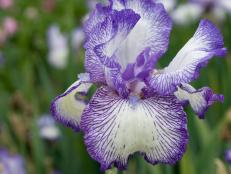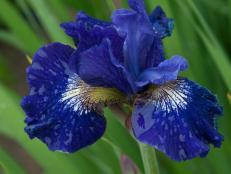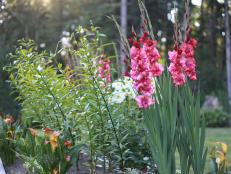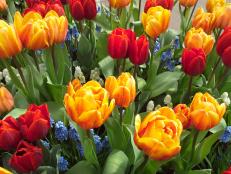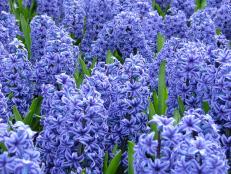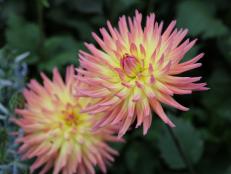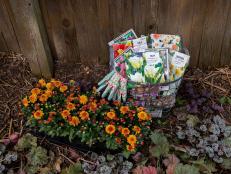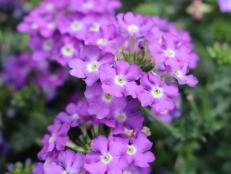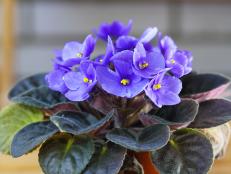Dutch Irises
Learn about Dutch iris, a type of iris that grows from bulbs.
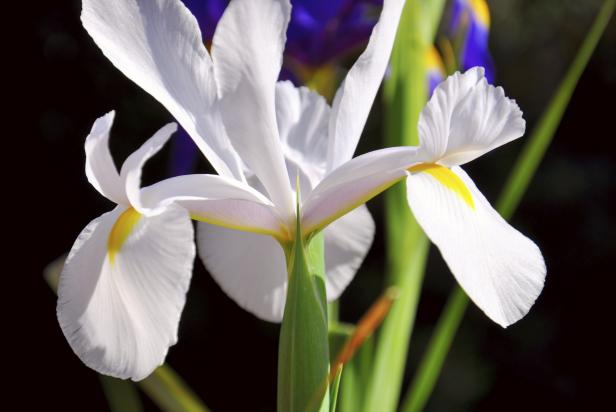
Discover the beauty of Dutch iris, a type of iris bulb that yields exquisite blooms from spring to early summer. Dutch iris stage their show over roughly a two-week period, but once you see a drift of these gorgeous iris bulbs in bloom, you’ll understand why it’s worth the effort to work a few into your landscape.
Dutch iris grow from bulbs, much like tulips or daffodils. When these beauties strut their flowery stuff depends on where you live and what type you plant. Some Dutch iris flower in time for Mother’s Day; others do their thing closer to Memorial Day and into early June. Read bulb package labels and online descriptions carefully to make sure you’re getting a Dutch iris that flowers when you want it to.
These lovely iris open flowers in a beautiful array of jewel-box colors. The most popular are probably the blue iris and the purple ones. These flowers often have streaks of yellow or gold on the lower petals, known as the “falls.” The pairing of blue or purple with gold is striking and eye-catching. You can also find Dutch iris flowers in other hues, including burgundy, pink, white, yellow, lilac, burnt orange and other tone variations.
In the garden, plant Dutch iris bulbs 3 to 4 inches apart and 3 to 4 inches deep. Give these iris bulbs a spot in full sun in light, well-drained soil. In Southern regions, it’s okay to tuck Dutch iris where they’ll receive a little afternoon shade. The most important aspect of your planting site should be well-drained soil, especially when bulbs are dormant in fall and winter.
Dutch iris are hardy in Zones 6 to 9, although some gardeners in Zones 4 and 5 overwinter Dutch iris in their gardens just fine. In Zones 6 to 9, Dutch bulbs are definitely winter hardy. But in colder areas, before investing in a large quantity of bulbs, try planting a few and see how they fare over winter. Many gardeners treat Dutch iris as an annual because the bulbs are inexpensive.
The planting window for Dutch iris depends on where you garden. If you’re in Zones 6 to 9, definitely plant Dutch iris bulbs in fall. Zones 5 and colder, unless you’re certain that the bulbs survive winter in your region, wait to plant until early spring.
Dutch iris bulbs make a terrific addition to a home cutting garden. The individual blossoms of a Dutch iris stem last three to five days each, but since each stem carries more than one flower bud, vase life stretches to about a week. Cut Dutch iris stems when flower buds are peeking about halfway out of the green sheath. The bloom should be unfurled slightly at the tip. Cut stems close to the ground, but take care not to cut into leaves. The bulb needs those leaves to generate internal food reserves for next year’s flower show.
Botanically, Dutch iris are known as Iris hollandica or Iris x hollandica. This group of iris are actually hybrids of several different iris, including Spanish iris (Iris xiphium). Some folks call Dutch iris “florist iris,” because this is the type of iris found in traditional flower shops.






